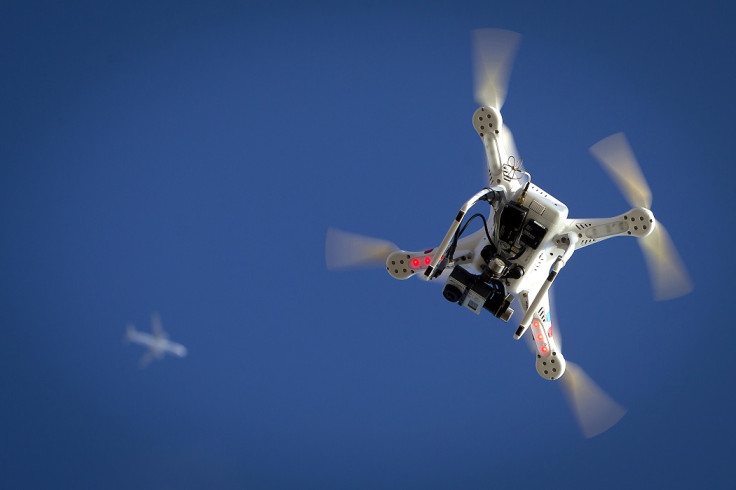Boeing and Hacking Team discuss spy drone that infects computers and smartphones via WiFi

Drones capable of delivering spyware to devices via Wi-Fi networks are being developed by aircraft manufacturer Boeing as part of a potential surveillance initiative.
The plans by Insitu, US drone company and Boeing subsidiary, were revealed in recently leaked documents from Italian software firm Hacking Team.
Internal emails from Hacking Team detail the "roadmap" for the project that would allow drones to infect a suspect's computer or smartphone and access emails, files and web history.
"We see potential in integrating your Wi-Fi hacking capability into an airborne system and would be interested in starting a conversation with one of your engineers to go over, in more depth, the payload capabilities including the detailed size, weight, and power specs of your [spyware] system," states one email uncovered by The Intercept that was sent from an Insitu engineer to Hacking Team.
What is Hacking Team?
Italian company Hacking Team sells sophisticated spying software to governments and law enforcement agencies around the world.
They have been criticised for selling their services to repressive regimes with questionable human rights records in countries such as Sudan, Bahrain and Kazakhstan.
On 5 July a trove of 400GB of data stolen from the company was posted online by an unknown hacker. This included sensitive documents, government tender details, client invoices, internal emails, and crucially, source code and explicit details on how the mass surveillance software operates.
"One engineer is assigned the task of developing a mini infection device, which could be 'ruggedised' and 'transportable by drone(!)'"
By using a tactical network injector (TNI), a Hacking Team account manager suggests that malicious code could be installed on a device over an open Wi-Fi network.
Insitu is yet to respond to a request for comment from IBTimes UK.
Hacking Team was the victim of a significant security breach earlier this month, which saw a huge trove of sensitive information leaked online.
Over one million emails were subsequently published by whistle-blower organisation WikiLeaks in an easily searchable format.
Other revelations that have come out of the document dump include an Android app filled with spyware capable of bypassing Google Play's strict app restrictions.
© Copyright IBTimes 2025. All rights reserved.






















